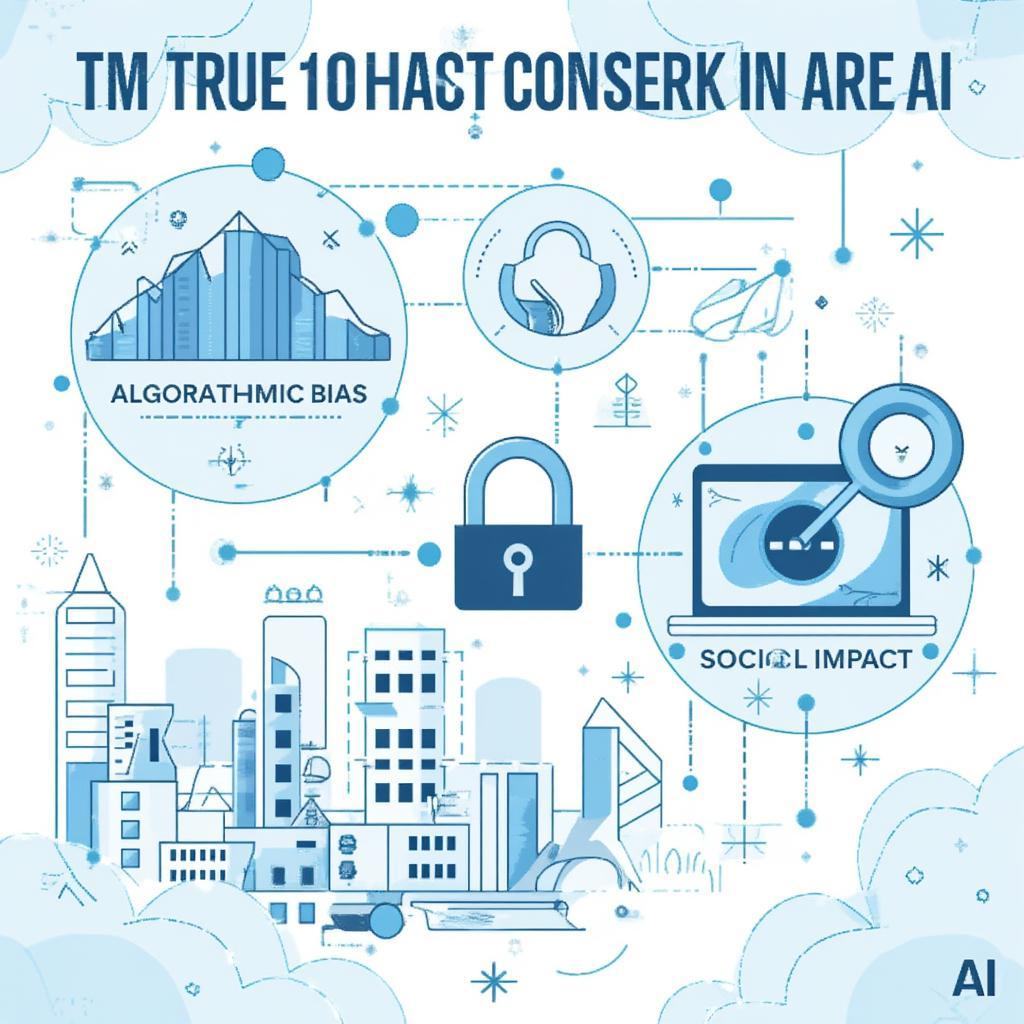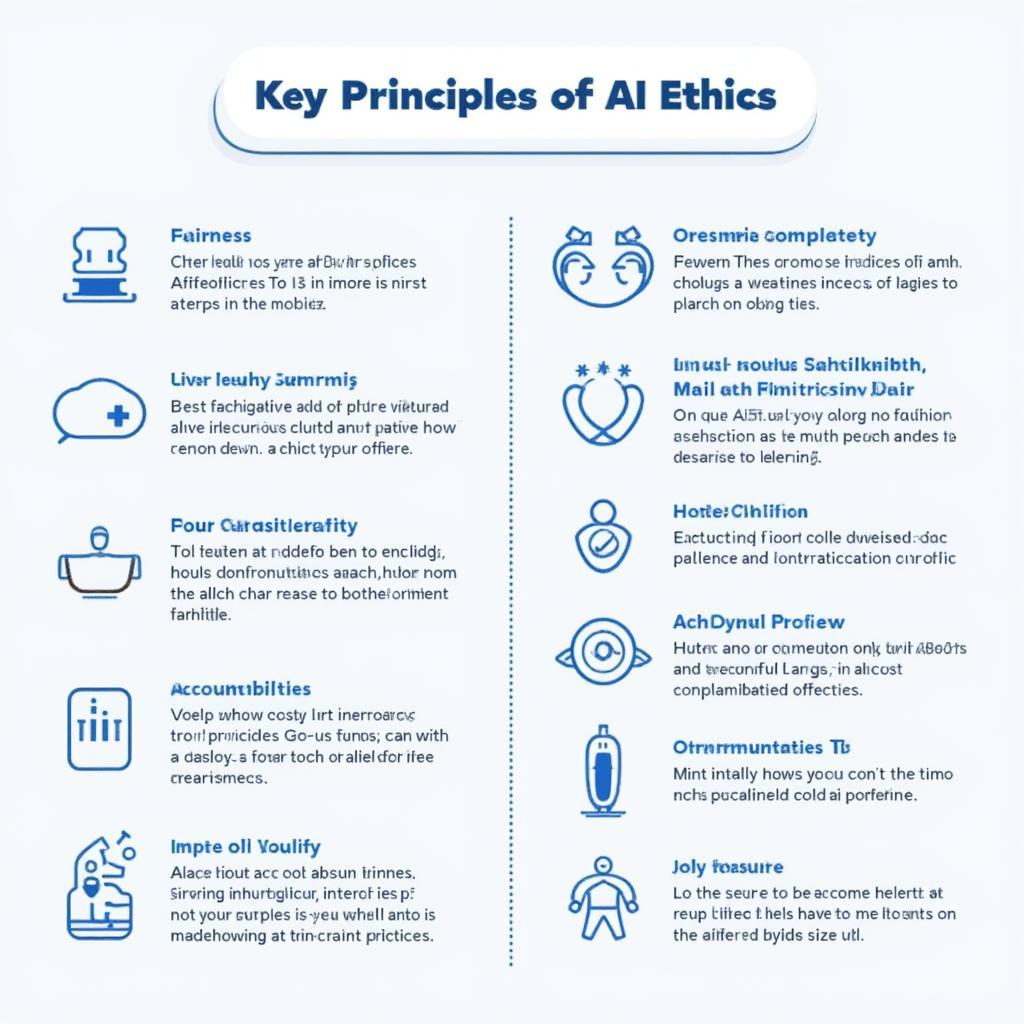Conversational Artificial Intelligence: The Future of Human-AI Interaction

Conversational Artificial Intelligence (AI) is rapidly transforming the way humans interact with technology. From chatbots providing customer service to virtual assistants scheduling appointments, conversational AI is becoming increasingly sophisticated and integrated into our daily lives. This evolution raises important ethical considerations that must be addressed to ensure the responsible development and deployment of this powerful technology. As conversational AI systems become more adept at understanding and responding to human language, we must ensure that these interactions are fair, unbiased, and beneficial for all.
Similar to artificial intelligence examples in real life, conversational AI is bridging the gap between humans and machines, enabling more natural and intuitive communication. But what exactly is conversational AI, and what are its implications for the future? This article delves into the core concepts of conversational AI, exploring its ethical dimensions and societal impact. We will examine the technologies driving this revolution, the challenges we face in ensuring its responsible use, and the potential benefits it holds for society.
Understanding Conversational AI: Beyond Simple Chatbots
Conversational AI refers to technologies, like chatbots and virtual assistants, designed to engage in human-like conversations. These systems leverage natural language processing (NLP), machine learning (ML), and deep learning to understand, interpret, and respond to user input in a meaningful way. They go beyond simple scripted responses, adapting to different conversational styles and learning from past interactions. This ability to learn and adapt is what distinguishes conversational AI from traditional rule-based systems. Conversational AI can analyze the context of a conversation, recognize user intent, and generate appropriate responses that are both informative and engaging.
Key Components of Conversational AI
Several crucial components work together to power conversational AI systems:
- Natural Language Understanding (NLU): This component allows the AI to understand the meaning and intent behind human language, including slang, idioms, and misspellings.
- Natural Language Generation (NLG): This component enables the AI to generate human-like text that is grammatically correct and contextually relevant.
- Dialogue Management: This component controls the flow of the conversation, ensuring that the AI responds appropriately to user input and maintains the context of the conversation.
- Machine Learning (ML): ML algorithms allow the AI to learn from past interactions and improve its performance over time. This continuous learning process is essential for conversational AI to become more effective and human-like.
Ethical Considerations in Conversational AI: Navigating the Moral Landscape
As conversational AI becomes more integrated into our lives, it’s crucial to address the ethical implications of this technology.
Bias and Fairness: Ensuring Equitable Interactions
Conversational AI systems are trained on vast amounts of data, which can reflect existing societal biases. This can lead to AI systems that perpetuate and even amplify these biases, resulting in unfair or discriminatory outcomes. Ensuring fairness requires careful attention to data collection, algorithm design, and ongoing monitoring of AI systems.
“Addressing bias in conversational AI is not a one-time fix but a continuous process requiring vigilance and adaptation,” says Dr. Anya Sharma, a leading researcher in AI ethics at the Institute for Ethical AI Development.
Privacy and Security: Protecting User Data
Conversational AI systems often collect sensitive personal information during interactions. Protecting this data is paramount. Robust security measures, data anonymization techniques, and transparent data usage policies are crucial to maintain user trust and prevent data breaches.
Transparency and Explainability: Understanding AI Decision-Making
Understanding how conversational AI systems arrive at their conclusions is essential for building trust and accountability. Transparency in AI decision-making processes allows users to understand why an AI system responded in a particular way, fostering greater confidence in its reliability.
The Future of Conversational AI: Transforming Industries and Empowering Humans
Conversational AI has the potential to revolutionize various industries, from customer service and healthcare to education and entertainment.
Enhancing Customer Experience: Personalized and Efficient Interactions
Conversational AI can provide 24/7 customer support, answering questions, resolving issues, and personalizing interactions. This leads to improved customer satisfaction and increased efficiency for businesses.
Revolutionizing Healthcare: Improving Access and Patient Care
Conversational AI can assist with appointment scheduling, medication reminders, and providing basic medical information, improving access to healthcare and patient engagement.
“Conversational AI offers a unique opportunity to democratize access to healthcare, especially in underserved communities,” states Dr. Ben Carter, a healthcare technology expert at the Global Health Innovation Center.
Transforming Education: Personalized Learning and Enhanced Engagement
Conversational AI can provide personalized tutoring, answer student questions, and offer feedback on assignments, enhancing the learning experience and promoting student engagement.
The Role of Conversational AI in the Metaverse: Creating Immersive Experiences
Conversational AI plays a critical role in creating engaging and interactive experiences in the metaverse. AI-powered virtual beings and characters can enhance the realism and immersion of virtual worlds. This connection to the metaverse is reminiscent of orange metaverse in its ambition to create interactive and engaging virtual spaces. While the specific technologies differ, the underlying principle of using technology to connect people in new and innovative ways remains consistent.
Conclusion: Embracing the Conversational AI Revolution Responsibly
Conversational artificial intelligence is poised to fundamentally change the way we interact with technology. By addressing the ethical considerations and embracing responsible development practices, we can harness the transformative power of conversational AI to build a more inclusive, efficient, and engaging future. As with the evolution of any technology, understanding the balance between old technology and new technology is crucial. While conversational AI presents exciting opportunities, a thoughtful approach to its development and deployment is essential to maximize its benefits while mitigating potential risks. The ongoing development of conversational AI offers immense potential for positive impact, provided we prioritize ethical considerations and strive for responsible innovation. This commitment to responsible development will ensure that conversational AI truly serves humanity and enhances our collective well-being.





